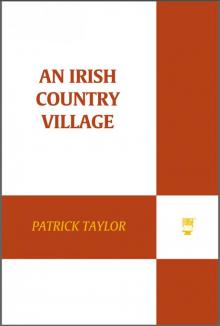Tarzan and the Jewels of Opar: By Edgar Rice Burroughs


Author: Edgar Rice Burroughs
Category: Science
Published: 2016
Series:
View: 443
Read OnlineHow is this book unique?
Font adjustments & biography included
Unabridged (100% Original content)
Formatted for e-reader
Illustrated
About Tarzan And The Jewels Of Opar by Edgar Rice Burroughs
Tarzan and the Jewels of Opar is a novel written by Edgar Rice Burroughs, the fifth in his series of books about the title character Tarzan. It first appeared in the November and December issues of All-Story Cavalier Weekly in 1916, and the first book publication was by McClurg in 1918. The novel was written while Burroughs lived in Oak Park, Illinois, which provided the name "Opar".In the previous novel Tarzan and Jane's son, Jack Clayton, a.k.a. Korak, had come into his own. In this novel Tarzan returns to Opar, the source of the gold where a lost colony of fabled Atlantis is located, in order to make good on some financial reverses he has recently suffered. While Atlantis itself sank beneath the waves thousands of years ago, the workers of Opar continued to mine all of the gold, which means there is a rather huge stockpile but which is now lost to the memory of the Oparians and only Tarzan knows its secret location. A greedy, outlawed Belgian army officer, Albert Werper, in the employ of a criminal Arab, secretly follows Tarzan to Opar. There, John Clayton loses his memory after being struck on the head by a falling rock in the treasure room during an earthquake. On encountering La, the high priestess who is the servant of the Flaming God of Opar, and who is also very beautiful, Tarzan once again rejects her love which enrages her and she tries to have Tarzan killed; she had fallen in love with the apeman during their first encounter and La and her high priests are not going to allow Tarzan to escape their sacrificial knives this time.
Font adjustments & biography included
Unabridged (100% Original content)
Formatted for e-reader
Illustrated
About Tarzan And The Jewels Of Opar by Edgar Rice Burroughs
Tarzan and the Jewels of Opar is a novel written by Edgar Rice Burroughs, the fifth in his series of books about the title character Tarzan. It first appeared in the November and December issues of All-Story Cavalier Weekly in 1916, and the first book publication was by McClurg in 1918. The novel was written while Burroughs lived in Oak Park, Illinois, which provided the name "Opar".In the previous novel Tarzan and Jane's son, Jack Clayton, a.k.a. Korak, had come into his own. In this novel Tarzan returns to Opar, the source of the gold where a lost colony of fabled Atlantis is located, in order to make good on some financial reverses he has recently suffered. While Atlantis itself sank beneath the waves thousands of years ago, the workers of Opar continued to mine all of the gold, which means there is a rather huge stockpile but which is now lost to the memory of the Oparians and only Tarzan knows its secret location. A greedy, outlawed Belgian army officer, Albert Werper, in the employ of a criminal Arab, secretly follows Tarzan to Opar. There, John Clayton loses his memory after being struck on the head by a falling rock in the treasure room during an earthquake. On encountering La, the high priestess who is the servant of the Flaming God of Opar, and who is also very beautiful, Tarzan once again rejects her love which enrages her and she tries to have Tarzan killed; she had fallen in love with the apeman during their first encounter and La and her high priests are not going to allow Tarzan to escape their sacrificial knives this time.
 Dreamer's Pool
Dreamer's Pool The World with a Thousand Moons
The World with a Thousand Moons Cauldron of Ghosts
Cauldron of Ghosts Carniepunk: The Demon Barker of Wheat Street
Carniepunk: The Demon Barker of Wheat Street Virgins
Virgins The Darwin Strain
The Darwin Strain The Calm Man
The Calm Man An Irish Country Village
An Irish Country Village